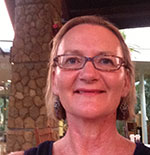"The Working with Administrative Data was one of the courses that provided me with the greatest benefits. As I was completing the PHDA 01 course, my workplace, the New Brunswick Institute for Research Data and Training, was just receiving its first health data set. Having had the opportunity to use BC’s administrative datasets such as the Discharge Abstract Database (DAD) provided me with a first glance at what our provincial data would look like, and how I could manipulate and analyze them."
